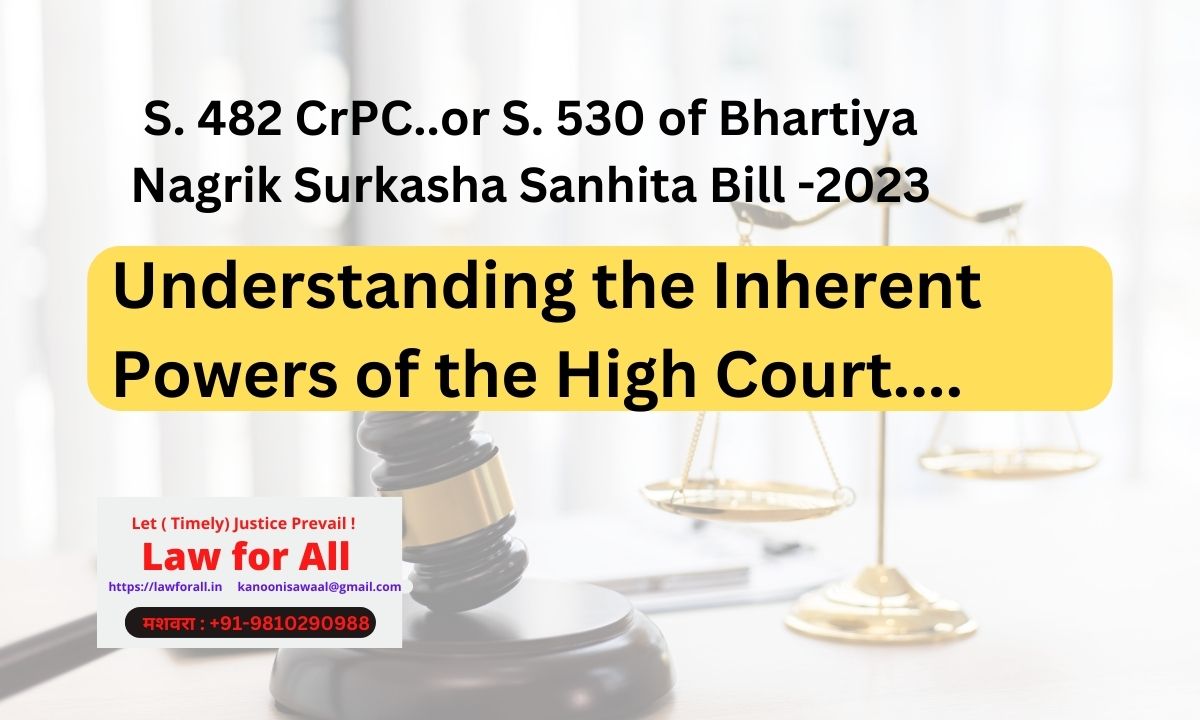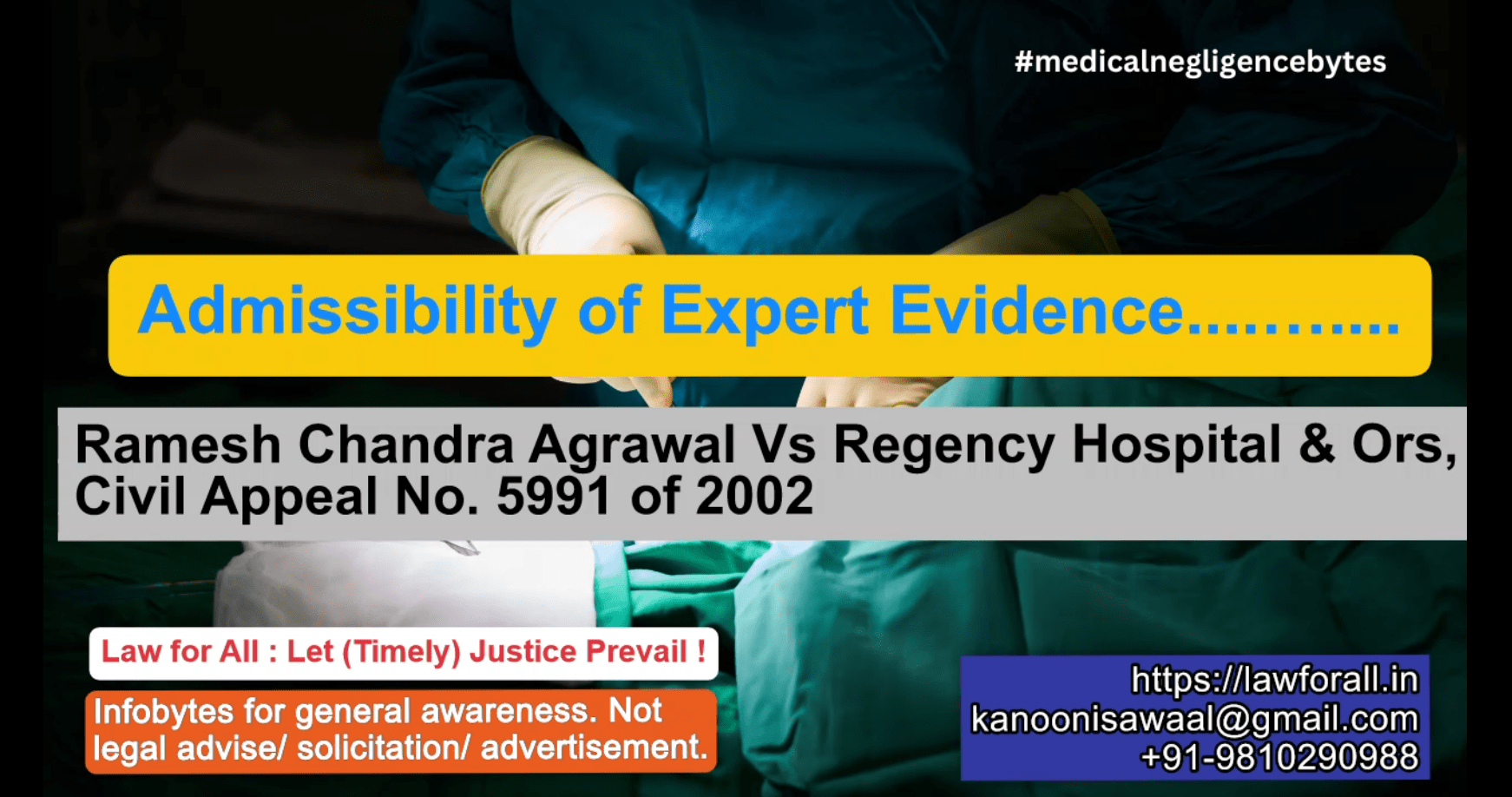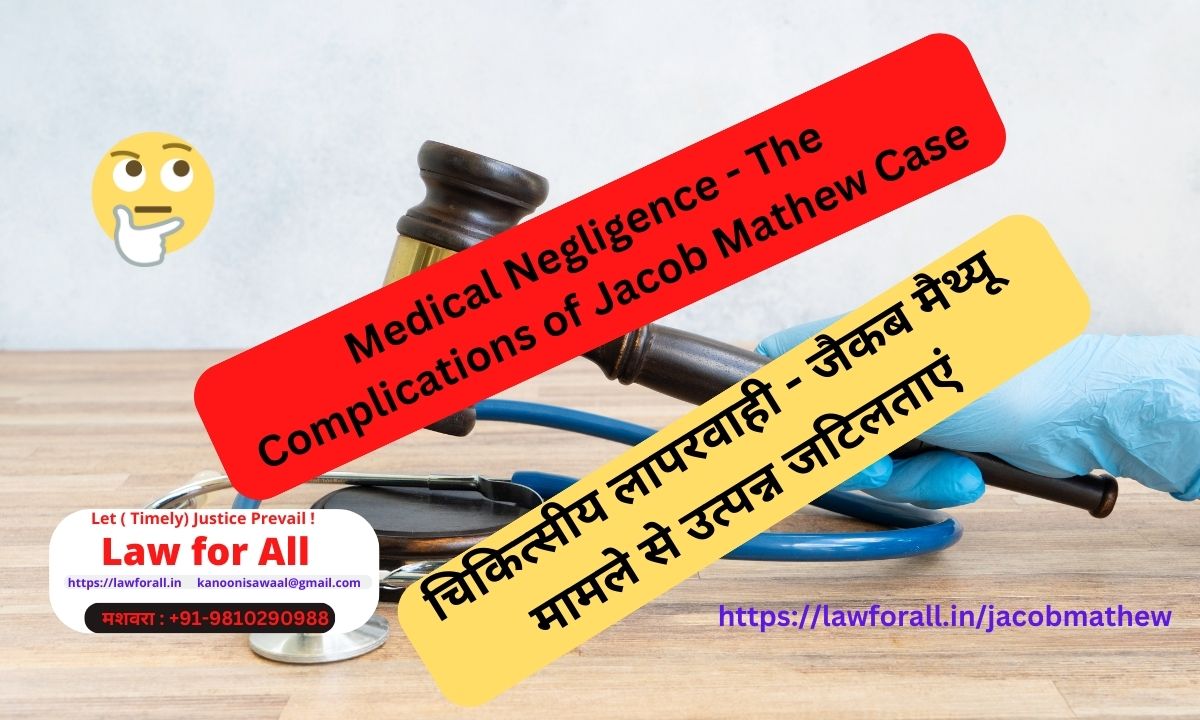A recent experience
I was recently involved in making a Petition under Section 482 of CrPC. Here, the Metropolitan Magistrate, despite being cited over several hearings, law as well as settled case law, chose to ignore the procedure as required by those and proceeded with an alternative simply because that was “being done usually” and that the Police had already proceeded on that course.
The Client strongly felt (and we agreed) that the course being adopted was full of inherent biases and will not lead to justice. Accordingly, a Petition u/s 482 of CrPC was filed. In the Petition we asked for the specific process as required by law to be adopted.
The Honorable High Court granted us the relief.
In the process I delved deep again into S. 482. Herein some of the aspects that may help any reading this article!
Section 482 CrPC- Saving of inherent power of High Court
S. 482 is a very significant article in the Code of Criminal Procedure (CrPC) in India. In the newly introduced Bhartiya Nagrik Surkasha Sanhta Bill -2023, it has been replaced by S. 530 which reads the same.
The section explicitly states that :
“Nothing in this Code shall be deemed to limit or affect the inherent powers of the High Court to make such orders as may be necessary to give effect to any order under this Code, or to prevent abuse of the process of any Court or otherwise to secure the ends of justice.”
Applications of Section 482 CrPC
While this section gives the High Court very wide ranging powers some its frequent applications include:
- Quashing Criminal Proceedings: This is the most common application. S. 482 is resorted to when a First Information Report (FIR) has been lodged. The intent of the Appellant is to have the FIR quashed. The High Court may quash such criminal proceedings if it finds that they are frivolous, vexatious, or initiated with an ulterior motive. This provision acts as a safeguard against the misuse of the legal system for harassment or personal vendettas. Of course it may be used in the reverse manner as well – when a lower court has denied an FIR and the complainant strongly feels it is needed.
- Jurisdictional Issues: In cases where the court lacks jurisdiction or where the proceedings are instituted in the wrong court, the High Court can invoke its inherent powers to direct the transfer of the case to the appropriate court.
- Settlements and Compromises: Section 482 allows the High Court to facilitate amicable settlements between the parties involved in criminal cases, especially in non-compoundable offenses. If the court is satisfied that the dispute has been resolved, it may quash the criminal proceedings.
- Protection of Witnesses: The court can exercise its inherent powers to protect the rights and safety of witnesses or victims in criminal cases. This may involve granting anticipatory bail or issuing directions to ensure their well-being.
- Prevention of Abuse of Process: The High Court can intervene if it finds that the proceedings are being used to harass or oppress the accused, or if there is a patent abuse of the process of law.
Essentially, any issue where the process of justice is apparently being subverted can be agitated before the High Court under this Section. Of course, after that the Court exercises its own wisdom based upon facts of specific cases to grant or deny the relief asked by the Appellant.
Appeal against an order made by a High Court u/s 482 CrPC lies with the Supreme Court.
Section 482 CrPC- Some salient Judgements
There have been several significant judgments by the Supreme Court of India and various High Courts that have interpreted and provided guidance on the application of Section 482 CrPC ( Criminal Procedure Code). Here are a few salient judgments and their key takeaways.
State of Haryana v. Bhajan Lal (1992) AIR 604, 1990 SCR Supl. (3) 259
Here the Honorable Supreme Court laid down the several examples where the High Court may exercise its inherent powers under Section 482 CrPC. It held that the High Court can quash criminal proceedings if they are manifestly attended with mala fides, are frivolous, or are instituted with an ulterior motive to settle personal scores. However, in the specific case the Judgement of the High Court squashing the FIR was set aside on basis of facts as well as law.
Madhavrao Jiwaji Rao Scindia v. Sambhajirao Chandrojirao Angre (1988), 1988 AIR 709, 1988 SCR (2) 930
The Honrable Supreme Court clarified that the power under Section 482 CrPC should be exercised sparingly and with caution. The test to be applied by the court is as to whether the uncontroverted allegations, as made, prima facie establish the offence. FIRs against the appellant-accused were quashed.
Geeta Mehrotra and Anr. v. State of U.P. and Anr. – Criminal Appeal No. 1674 of 2012
The Supreme Court held that while jurisdiction of the lower ( Trial ) Court should not be usurped lightly, the High Court has also the responsibility to view a case in its entirety and determine if specific grounds are there in the FIR against the Appellants. That not being the case, FIR lodged against the Appellants was quashed.
Jagmohan Singh Vs Vimlesh Kumar and Ors – Crl. Appeal 741 of 2022
In this recent case The Honorable Supreme Court has again reiterated that the jurisdiction of the trial courts should not be lightly interfered with. If a prima facie case of an FIR has been made out, investigations should proceed.
Hence Section 482 CrPC ( or now S. 530) sets out really powerful means for justice to be served. Power of course has to exercised with caution, as is amply reiterated by the judgements above.
Food for thought ? Any experiences to share ? Do comment in !
For any further queries and discussions, please see the the contact us page.
किसी भी प्रश्न और चर्चा के लिए कृपया हमसे संपर्क करें। यह पृष्ठ देखें।



